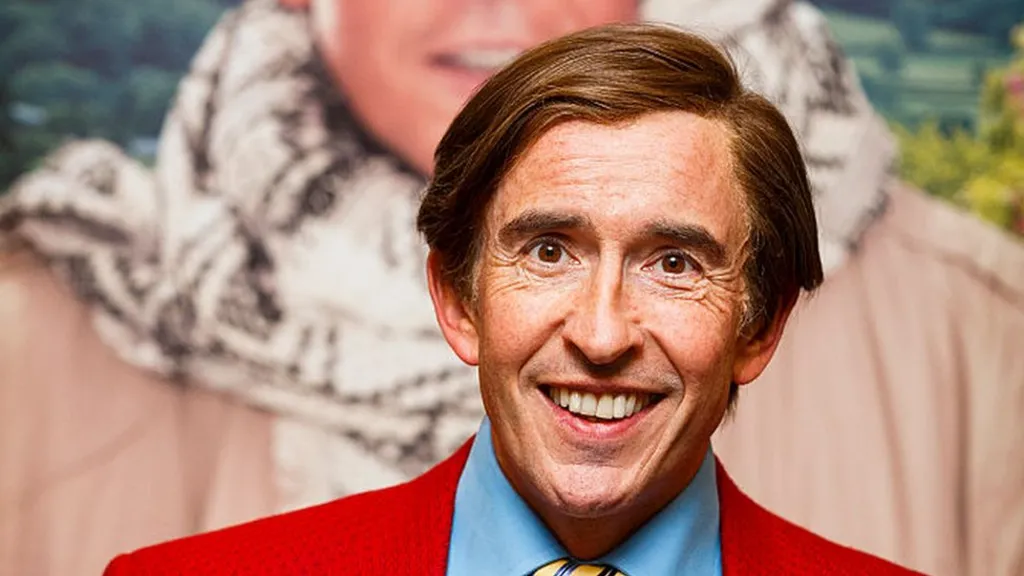Many of us of a certain age will remember the Alan Partridge scene where he is pitching to a TV executive in a bid to get a new series commissioned.
Getting ever more desperate, the fictional British TV presenter suggests shows such as Inner City Sumo, Youth Hostelling With Chris Eubanks, and finally, Monkey Tennis. All were perhaps unsurprisingly rejected. Maybe Partridge, played by comedian and actor Steve Coogan, would have had better luck if he had let an artificial intelligence (AI) computer system pick the ideas.
That may initially sound like a highly fanciful idea, but a number of TV production companies have already announced that they are using AI to help them dream up new programmes. These include RTL Group, whose subsidiaries make everything from The X Factor, to The Apprentice, Grand Designs and QI. It said last year that it had “started to support content creation with generative AI.”
Meanwhile, Banijay, which makes Deal or No Deal and Keeping Up with the Kardashians, now has a fund to back AI-created content. Announcing this last year, it said: “While human creativity will always prevail, it's important to work alongside the tools which are available to contribute to the future of ground-breaking entertainment.”
While neither firm has yet to unveil a new TV series whose idea came from an AI system, I decided to put one to the test. So I logged into an AI chatbot, and typed in what I was looking for. I wrote: “I am trying to think up a new TV format. A series with contestants.
“Maybe they would be learning a new skill, like dancing, or perhaps they are trying to compete in communities to have the most sustainable environment. Can you help me with some ideas?”
The AI confirms that this could be an exciting endeavour. And instantly comes up with six ideas. I like its first suggestion – Skills Mastery Showdown – where contestants would be paired with skilled mentors, and have a limited time to master a specific new skill, such as dancing, cooking or painting.
But what do TV industry experts think about the use of AI in coming up with future content? I ask Dan Whitehead, who is a senior consultant at K7 Media, a Manchester-based research firm that reports on the TV business.

“The idea of a machine that you can type a request into, in normal conversational language, and have it spit out something close to what you asked for, still feels pretty magical,” he says. “So it's understandable that people are drawn to it.
“Can something like [AI chatbot] ChatGPT generate ideas for a TV show? Of course, but then ideas for TV shows have never been in short supply. The big problem for most production companies is the uncertainty – which ideas are best, which ones are worth investing in?”
Mr Whitehead argues that AI can give people false confidence, giving them the sense that if it – with access to billions of data points – can come up with these ideas, they must somehow be better.
I look back at Skills Mastery Showdown. Maybe it's not that innovative after all. Mr Whitehead says that AI is better used in a much more nuanced, background way.
“The BBC's Springwatch and Winterwatch use a bespoke AI system that monitors live camera feeds, and has been trained to recognise, record and log different species of animals and birds as they appear in the frame,” he says. “It can then tell the production team how often they appear, give behavioural insights, and generally do something that would eat up hours of human production time.”
Eline van Der Velden, founder and chief executive of London-based TV production firm Particle 6, is more positive about using AI to both help come up with ideas for new programmes, and to write scripts. She says that recently she had two versions of a script ready for a client, one edited by humans, and the other by Chat GPT. “We gave them both versions, and they preferred the ChatGPT one,” she says.
Not that she tells customers that AI might have been involved. “I wouldn't even mention to people now that we are using it. There's no need.”
Ms van Der Velden adds that she wants her producers to know how to use AI to help them do their job. “[Otherwise] it's like having someone who doesn't know how Microsoft Word works,” she says. “It speeds everything up.”
She also says that AI isn't replacing jobs in TV, or at least not all of them. “It's like when accountants thought they'd be out of work with the advent of Excel.
“You still need a creative director, but this is a tool that programme makers should use. It will enable us to reach the next level of our full potential.”


